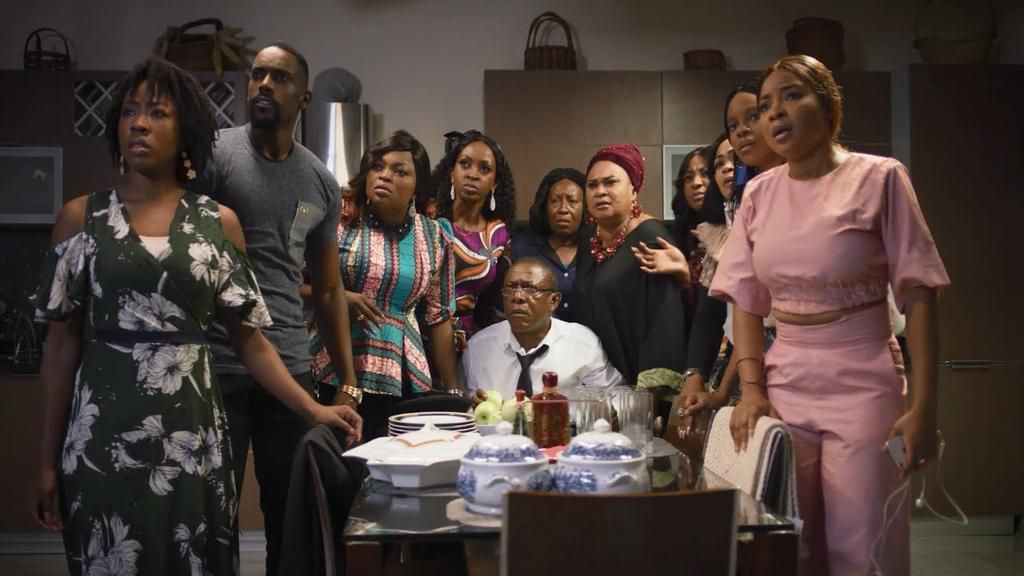3 major international platforms leverage on Nollywood for content
)
Canal +, Netflix and Multichoice are three major international platforms that are working behind the scenes to dish out contents from Nollywood across the globe.
While Canal+ and Multichoice are benefiting from the local production, Multichoice is using the opportunity to introduce its new streaming platform, Showmax.
Showmax, Multichoice's video-streaming service, launched in Nigeria to battle for subscribers with content across the globe. With Showmax's launch in 2019, Multichoice believes the Nollywood phenomenon makes content development interesting as it already has a huge and loyal fan , which it has garnered in the last three decades.
Since it launched, Showmax had kicked off several foreign and local shows. It led the long list of shows with two new shows bordering on events in the BBNaija 2019 and hosted by two of Nigeria’s biggest comedians, Basketmouth and Bovi.
![Basket Mouth and Bovi recently kicked of a new show on Multichoice's Showmax, few months after launch. [Showmax]](https://image.api.sportal365.com/process/smp-images-production/pulse.ng/14082024/523b597c-ab8f-4131-9d7a-5a013b3cda2e)
However, with Showmax, Multichoice feels taking a generic service and on a few Nollywood movies won’t cut it, so decided to throw in a strong mix of bang up-to-date Nigerian shows, international hits and favourites from across Africa.
Canal + is banking on the acquisition of Mary Remmy Njoku’s ROK Studio to leverage on Nollywood for content after the Nigerian Movie Industry has been referred to as the world's second most prolific industry, producing hundreds of films and TV episodes every month.
Before the acquisition, ROK Studios was responsible for the production of 80% of the content on ROK channels on Multichoice’s DSTV. The studios, which was founded six years ago, has produced more than 540 films and 25 series.
In a report by Reuters, Njoku says one of the aims of the studio is to increase production in 2020 to around 300 films and 20 series annually under Canal+.
![Mary Njoku aims at producing over 300 movies and 25 shows annually through ROK Studios for Canal +. [ROK Studios]](https://image.api.sportal365.com/process/smp-images-production/pulse.ng/14082024/8097d2f6-9c25-4d85-b35f-8ef20972d2f2)
According to the report, Canal + has found the acquisition of ROK a business necessity after it lost 1.3 million individual subscribers since 2013 and gained over 3 million African subscribers since 2014 in the pay-TV market.
Another reason Canal + is banking on its acquisition of ROK studios is to replicate the Nollywood model in Francophone Africa. This move will end the slow and expensive process of producing TV shows - producers, technicians, directors from Nollywood will be taken to French-speaking Africa countries to try to develop new production methods.
Netflix and Amazon, two top international brands giving Canal + and Multichoice a run for their money in several markets are gradually gaining ground in Nigeria.
Though top players believe Netflix, which seems to be the most popular of the two in Nigeria and Africa, pose no threat due to a widespread lack of 4G coverage or fixed broadband internet, consumers seem to be enjoying every bit of their involvement. And to make matters interesting, Nigerian movies are already getting on the streaming platform.

In 2018, Netflix officially announced its induction into getting content from Nollywood after the acquisition of Genevieve Nnaji’s ‘Lionheart’. In 2019, Netflix's first original film produced in Nigeria was released in January. The US giant streaming platform has gone on to get license deals for films such as EbonyLife films’ ‘Chief Daddy’ in March 2019 and Kunle Afolayan’s ‘Mokalik’ in July.
Despite the threats which Netflix poses, Multichoice is sure Showmax will thrive in the streaming market.
For the competitors, a largely untapped audience of 1 billion remains why they are willing to partner network and internet providers to get a share of the Nigerian and African markets.
Showmax, which also runs in Kenya and South Africa, has tested the option by partnering with mobile phone operators to offer reduced data and subscription fees.
According to Reuters, Multichoice is experimenting with installing wireless internet in public transport, to ease content download without personal data.
)
)
)
)
)
)
)
)
![Kunle Afolayan [Pulse]](https://image.api.sportal365.com/process/smp-images-production/pulse.ng/12082024/99a2d860-d234-464c-98ff-95edb6ff675a?operations=autocrop(236:157))
)
)
)
)
)
)
)